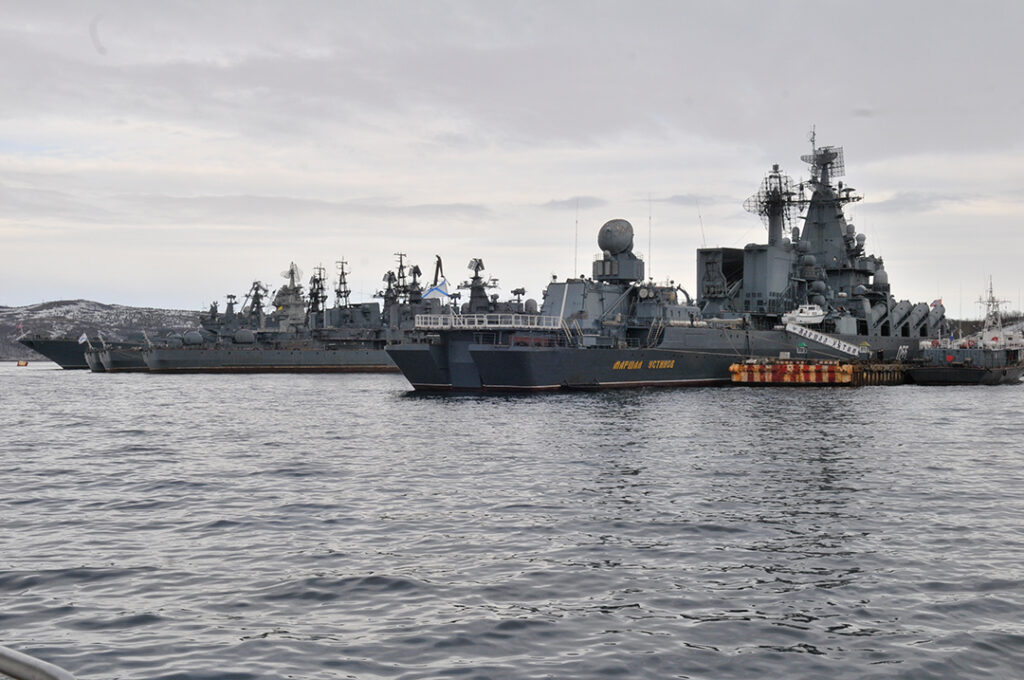THE WATCH STAFF
Russia’s increased military presence in the Arctic and how it views the region are inseparable, experts say.
“The Arctic is central to Russian national security — full stop. Doesn’t matter how you define it. And that will be their critical zone of action,” said Dr. Rob Huebert of the University of Calgary in Alberta, Canada.
Huebert and Dr. Katarzyna Zysk of the Norwegian Institute for Defence Studies in Oslo spoke January 27, 2022, as part of the Arctic Academic eTalks, a bimonthly virtual forum on key issues affecting the region.
Both scholars noted that Russia’s Arctic focus is not a recent development, and its willingness to use its military to pursue foreign policy goals should come as no surprise.
“It’s virtually impossible when talking about Russian militarization and the Arctic without a recognition, of course, of [what is] … being played out literally before our eyes,” Huebert said of Moscow massing forces on the border of Ukraine.
“We’re seeing … the spillover effect of the crisis that is developing in Ukraine already factoring into our understandings of Arctic security,” he said. “And more specifically, in terms of Russian behavior in the Arctic region. The Russians, of course, have called for an Arctic [large-scale naval] exercise — sort of shades of ‘The Hunt for Red October.’”
(Pictured: Russian warships in Severomorsk in 2011)
IMAGE CREDIT: U.S. NAVY
Warships from Russia’s Northern Fleet entered the Barents Sea in late January to rehearse the protection of a major shipping lane in the Arctic, Reuters reported.
The New York Times newspaper pointed out in an October 22, 2021, story on Moscow’s military buildup in the region that for “its entire history, Russia was effectively defended from the north by the frozen Arctic Ocean.”
Now those natural defenses are being altered by drastic reductions in sea ice.
Both scholars said the Arctic regained its importance — if it ever wavered — as a geopolitical center of gravity for Moscow by 2007 when President Vladimir Putin made his now-famous speech at the Munich Security Conference. Putin’s remarks were seen as a warning to the West that Russia’s patience with NATO expansion was over and the era of strategic competition had returned. Putin, of course, would invade Ukraine and annex Crimea in 2014 — what many view as the precursor to the current crisis.
Huebert said that Russian militarization in the Arctic must be seen as a long-term dynamic that is a response to the renewed U.S. military commitment to the region as melting ice opens shipping routes and exposes regional borders.
“So please get out of your mind the idea that the Russians are just militarizing after the Ukrainian crisis of 2014,” he said. “This is a long-term thinking of the Russians. It’s an action-reaction dynamic that we are in now.”
Those actions have always had a place in how Russia views itself as a global power, Zysk said.
“The Arctic has such an important place in Russia’s history, national identity,” Zysk said. “Moscow has … used the Arctic for demonstrating Russia’s resolve, military capabilities, seriousness of Russia’s intentions … both to domestic and foreign audiences.”
The Arctic Academic eTalks are co-hosted by U.S. Northern Command and its magazine, The Watch; U.S. European Command; U.S. Indo-Pacific Command; and the North American and Arctic Defence and Security Network.

